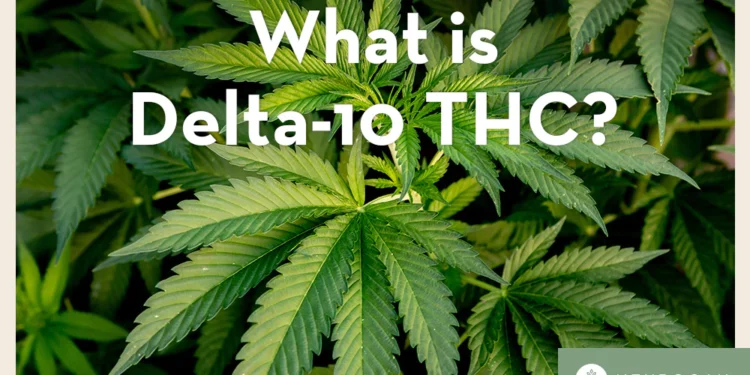Delta-10 THC is a cannabinoid that’s capturing the interest of consumers and scientists alike. As a relation of the tetrahydrocannabinol family, it partake a chemical origin,with its more renowned family, delta-8 and delta-9 THC, but it properties a fine fettle of corpuscle that influences how it interacts with the body’s endocannabinoid system This leads to distinctive effects and potential benefits that differ from other forms of THC. While delta-9 THC is the most well-known form for its psychoactive properties, delta-10 is typically less potent and is often associated with more uplifting and energizing experiences
The production of delta-10 THC is particularly noteworthy as it is not easily extracted from cannabis due to its low natural occurrence. Most delta-10 on the market is derived from hemp, utilizing processes that convert hemp-derived CBD into delta-10 THC. Thanks to the 2018 Farm Bill, hemp-derived cannabinoids, including delta-10 THC, occupy a unique legal landscape. They can be legally sold in many parts of the United States where regulations have adjusted to account for the bill’s distinction between hemp and cannabis, although some states have their own restrictions on cannabinoids irrespective of their origin.
Product offerings containing delta-10 THC have been growing, but so has regulatory scrutiny in several states. Consumers looking to try delta-10 products must therefore stay informed about the shifting legalities in their state, while also being mindful of the quality and sourcing of the products they choose. The expanding availability of delta-10 THC reflects a broader trend in the diversification of cannabis products on the market, appealing to a wide array of preferences and purposes among users.
Understanding Delta 10 THC
Delta 10 THC is a cannabinoid known for its less pronounced psychoactive goods compared to its kinsman, delta 9 THC. In this section, we explore its chemical profile, legal status, goods, and vacuity in the request.
Chemical Profile and Comparison
Delta 10 THC, like delta 8 and delta 9, is a compound derived from the hemp plant. It has a similar chemical structure to delta 9 THC, with subtle differences in the placement of certain bonds, which affect its potency. While both delta 8 and delta 10 are analogs of delta 9, they are less potent and psychoactive, offering a milder experience to users.
Legality and Regulation
The legality of delta 10 THC can be complex and varies by jurisdiction. In the United States, synthetically derived delta 10 from hemp may fall under a legal gray area provided that the final product contains no more than 0.3% delta 9 THC, aligning with the 2018 Farm Bill. However, state laws can differ, and it is essential for consumers to review their local regulations.
Potential Effects and Benefits
The effects of delta 10 THC are reported to be less intense compared to delta 9, potentially offering therapeutic benefits without the same level of psychoactivity. Potential benefits include mood elevation and relaxation. However, scientific research on delta 10 THC is limited, and most information comes from anecdotal evidence.
Sources and Availability
Delta 10 THC is set up in only trace quantities in natural cannabis shops. As similar, most marketable delta 10 is produced synthetically or through specialized processing ways The compound is available in various product forms, such as edibles, tinctures, and vaping products, although availability may be limited due to its relative rarity compared to other cannabinoids.
Delta 10 THC Products and Consumption
Delta 10 THC is available in various product forms, each with its own considerations for safe use. Consumers are advised to choose lab-tested options to ensure potency and purity.
Product Forms
Delta 10 THC comes in several product types, catering to different preferences and consumption methods. Some of the most popular forms include
- Tinges: These liquid excerpts are administered sublingually( under the lingo) for quick immersion.
- Edibles: Delta 10 THC-infused edibles, such as gummies, offer a discreet and convenient way to consume the cannabinoid with a longer onset time.
- Vape Cartridges: Inhalation through vape cartridges provides fast-acting effects, making it a favored choice for many users.
- Capsules: For those who prefer precise dosing, capsules provide a measured amount of Delta 10 THC per pill.
Safe Use and Considerations
Safety is paramount when utilizing Delta 10 THC products. Consumers should:
- Seek out lab-tested products to ensure safety from contaminants and verify potency.
- Start with a low dose, especially when trying a new product, to gauge individual tolerance.
- Be aware that the effects of Delta 10 THC can vary based on individual physiology and the method of consumption.
Market Trends and Consumer Choices
The Delta 10 THC market is evolving, with consumer choices heavily influenced by:
- Brands that have established a reputation for quality and safety.
- Increasing interest in products that offer a milder high compared to Delta 9 THC.
- A preference for convenience and discreetness, which has propelled the popularity of gummies and vape cartridges.
Consumers tend to prefer products that are transparent about their lab testing results and offer clear information on their potency and ingredient sourcing.






